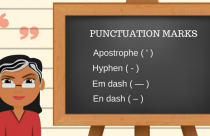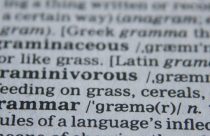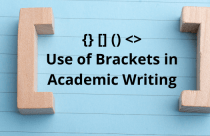Comma, Dashes, Parentheses: Effectively Using Punctuations in Research Writing

Poor punctuation can camouflage, or even entirely deface brilliant ideas. This article addresses three of the most troublesome marks in English.
- Comma
- Dash
- Parentheses
When to Use Commas in a Sentence
Commas are frequently used and frequently misused. Grammarians have variously assigned a couple dozen distinct uses to the comma, but here we will concentrate only on the most troublesome.
Setting off an Introductory Phrase
Use a comma after an introductory word, phrase, or clause that precedes the main clause.
For the Stop RT, there was a significant condition X group interaction (F = 8.78 (1, 38) P < 0.01).
Foremost among other uses of the comma, this one is geared to the pause an actual speaker would make if the sentence were to be spoken aloud.
Listing
Use a comma when listing items in a series. Some publications have stopped using a comma before the last item in a series and if so, they will ask you to follow suit. Unless you know, however, that the publication has adopted this innovation, always use that last comma (also called the “serial comma” or the “Oxford comma”).
In a phrase that includes the serial comma, e.g. “We invited the musicians, JFK, and Stalin,” three invitees are specified. In the phrase without that comma, e.g. “We invited the musicians, JFK and Stalin,” musicians were explicitly invited; moreover “JFK” and “Stalin” can be thought of as members of the musician group.
Bracketing
Misreading a list that lacks its final comma is due to the fact that a comma can validly be used to set off a word or phrase in apposition, one that defines or modifies the phrase that precedes it. This use is also called “bracketing.”
Leaving aside for the moment the anomalies in these lines, a passage containing both ambiguity and truth, one notices that Alisoun at once branches into a new verse paragraph: “And neer he cam, and kneled faire adoun” (803).
In the example, the “anomalies in these lines” are equated with a “passage containing both ambiguity and truth.”
Omission
Sometimes a comma is used to indicate the omission of the word “and” or of a parallel-form marker. In the example below, the last comma stands for “and Khit San was”:
Khit San was Burma’s first “experimental” poetry movement, notable for the inclusion of everyday language.
When to Use Dashes in a Sentence
The dash is also called the “em dash” or “long dash.” Dashes are used as a kind of advanced bracketing to set off emphatic content. Some publishers print a space on either side of the dashes.
The more inventive poetry is in honoring and transforming tradition—while avoiding the political censor—the more extraordinary it can be. (Byrne, 37)
When to Use Parentheses in a Sentence
Unlike the dash, parentheses are used to set off inessential content. If the sentence does not make sense when you skip the information in parentheses, restructure it!
Type II alcoholism has been linked to a disturbance of the central serotonin (5-HT) system. (Crean, 349)
If you find that you are writing very long sentences that require lots of punctuation, you are probably writing about more than one thing at a time, which can confuse or tire your reader. You do not have to tell the reader everything you know in a single sentence!
However, Khit San (translated as “testing the times”) retained a proclivity toward Burmese nationalism and the preservation of cultural symbols—perhaps expectedly under the strong arm of British colonization—and the preservation of a climbing rhyme first used in the pagan era (its rhyme scheme operated a 4-3-2 rhyming pattern of four syllables per line, the last or fourth syllable of the first line rhyming with the third syllable of the next line and the second syllable of the third line, and so on, usually ending with a line of seven syllables). (Byrne, 35)
In the example above, the first parenthetical should be omitted. The second should be rewritten as a separate thought.
Perfectly punctuated sentences of varying structures help you engage and retain your reader’s attention.










